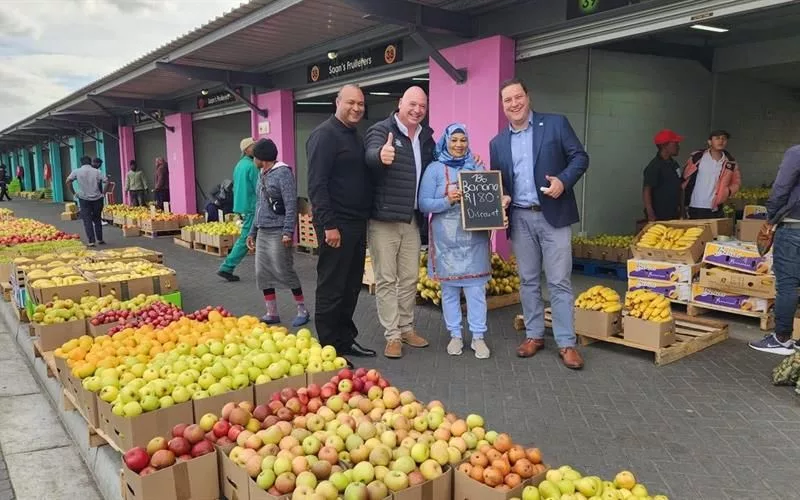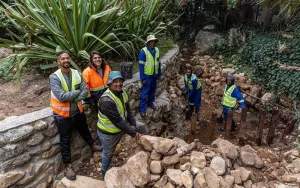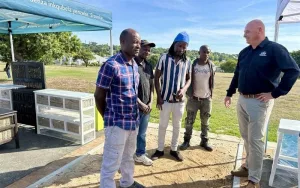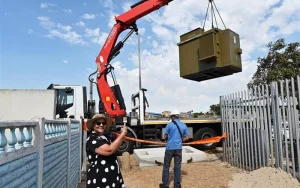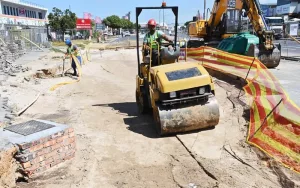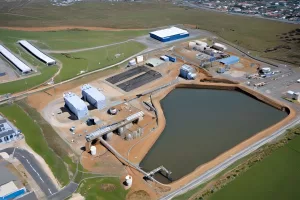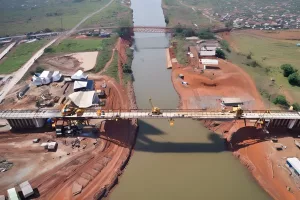Cape Town is investing in its informal economy by improving trading spaces with enhancements such as asphalt coating, pavers, and gazebo hooks. Major infrastructural projects are underway, including a container market and Traders Support Services Centre. The city proposes dedicated business training workshops to strengthen local entrepreneurs’ commercial prowess. Cape Town’s approach showcases how cities can develop inclusive, resilient, and dynamic economies.
Cape Town’s Catchment, Stormwater, and River Management department is leading a largescale project to rejuvenate the Blinkwater Stream in Camps Bay. The project aims to repair the concretelined channel, construct two silt basins upstream to trap large boulders, and equip the city to better resist future weather adversities. The innovative project, which integrates several detailed strategies, reflects the city’s commitment to sustainability and proactive infrastructure maintenance.
The City of Cape Town is welcoming 19 recent graduates to its Infrastructure Skills Development Grant Programme, chosen from a staggering 3,035 applications. The diverse group possesses critical qualifications in infrastructure development fields and hails from various locales within the metro region and beyond. They will acquire invaluable onthejob experience working on infrastructure projects and contribute to the city’s training capability and nurture a skilled set of professionals proficient in areas experiencing a talent shortage.
Hout Bay in South Africa has been facing persistent water supply disruptions due to pipeline leaks and bursts, causing discomfort for the inhabitants and commercial entities. Despite the ongoing struggle, the local government is determined to find longterm solutions to the problem, while the City’s maintenance personnel and technical specialists work tirelessly to restore the water supply. However, Hout Bay residents show resilience and unity in the midst of the crisis, embodying the unbreakable spirit of the community.
Attention Cape Town residents! Scheduled maintenance of the city’s water supply system is taking place from April 15 to April 18, 2024. This joint effort by the City and the National Department of Water and Sanitation is crucial to ensure the endurance and peak performance of the water supply system. While some water supply interruptions are expected, proactive measures are being taken to limit the impact on residents. We urge everyone to reduce their water usage during this period and store sufficient water for essential needs. Let’s work together to ensure a reliable water supply system for the future!
Cape Town is investing R118.5 million to enhance its informal economy by transforming trading sites, providing trader training, and exploring new markets. The plan is to create a dignified and accessible business environment that fosters entrepreneurship and economic activity. Alderman James Vos is leading the initiatives towards a more dynamic, inclusive, and resilient economy. The city has already executed infrastructure enhancements and introduced designated trading bays, with plans to construct more in the future.
The ‘Building for Jobs’ budget in Cape Town is a transformative fiscal strategy focused on infrastructure and job creation, with a record R76.4bn allocated for the financial year 2024/25 and R12.1bn earmarked for infrastructure. The budget is expected to create 130,000 jobs over the next three years and is committed to social inclusion and green energy. It also reflects the city’s dedication to social welfare, green energy, and safety measures. This innovative budget represents a pivotal juncture for Cape Town, driven by a vision of a wealthier, fairer, and more inclusive future.
Kensington in Cape Town is undergoing a major infrastructure transformation, moving from overhead electricity lines to an underground system. This project involves replacing over 5,500 metres of overhead electricity conductors and 42 transmission poles with 5,315 metres of underground cabling. The project is set to improve the reliability of infrastructure, area aesthetics, and safety. It is projected to be completed by April 2024 and is part of the City of Cape Town’s efforts to mitigate chronic loadshedding and rampant vandalism. The benefits of transitioning to an underground power infrastructure are manifold, including enhanced reliability, improved safety, and boosted visual appeal.
The City of Cape Town’s Water and Sanitation Directorate is conducting important maintenance on the water supply infrastructure from March 12 to 14, 2024. The maintenance work includes zeropressure tests and conditional assessments, with the aim of reducing future interruptions, improving sustainability, and ensuring consistent water supply. Residents should prepare for the planned water supply interruptions and store water for use during the maintenance period. The maintenance is a proactive step towards effective water pressure management and a testament to the City’s dedication to conserving water.
A new project called Beacon Valley Rejuvenation is upgrading infrastructure in Cape Town’s Area South with a R68.5 million investment. The project features the establishment of a minisubstation powering homes and businesses, but it is facing challenges due to vandalism and loadshedding periods. The city’s energy squads are implementing innovative strategies to combat the issue and the community is requested to cooperate in safeguarding infrastructure.
After facing multiple collapses in their aging infrastructure, Montague Drive in Cape Town has undergone a remarkable restoration led by the city’s Water and Sanitation and Roads and Infrastructure Management teams. The project aimed to provide a longterm solution to the area’s infrastructure needs, with a new sewage pipeline using advanced microtunnelling technology as part of the city’s future plans. The story of Montague Drive’s revival is a testament to the city’s dedication to building a resilient and sustainable future.
The Koeberg Sewer Pump Station is facing challenges due to sand and foreign debris intrusion, causing regular breakdowns and overflow. The city is addressing the issue by installing a sand trap and screening facility, increasing capacity, acquiring new pumps, and reassessing the berm design. A longterm improvement plan costing R118 million is projected to be completed by 2028. The city has also implemented temporary measures such as a dieseloperated mobile pump and a rising main to manage overflows during peak periods. The goal is to ensure efficient sewage management and protect the environmental health of the Milnerton Lagoon.
Planned water supply disruptions are happening in some areas of the city to improve the water supply infrastructure. Citizens are encouraged to store adequate water in clean, sealed containers and keep their taps closed during the disruption phase. The City is managing water pressure more efficiently to reduce potential pipe bursts and unnecessary water wastage. Follow @CityofCTAlerts on Twitter for realtime updates.
Planned water supply maintenance is essential for improving the water supply infrastructure and customer experience. Tests and evaluations, as well as maintenance work, are conducted to proactively maintain and upgrade infrastructure, which secures future water supply continuity. While some pressure fluctuations and temporary water supply interruptions may occur, every effort will be made to keep them to a minimum. Residents impacted by these operations are advised to take note of the information and make the necessary arrangements.
The Mega Bridges of Eastern Cape, South Africa are two massive Chinese bridges being built as part of the N2 Wild Coast Road project. They include the Msikaba bridge, which will be Africa’s longest cablestay bridge and the Mtentu bridge, Africa’s highest bridge and one of the world’s longest mainspan balanced cantilever bridges. These impressive engineering feats are providing vital infrastructure to the region, generating jobs and economic growth. Although the projects faced obstacles and setbacks, they symbolize human resilience, ingenuity, and the promise of a brighter future.
The recent derailment in Richards Bay, South Africa, has had global implications, highlighting the fragility and resilience of interconnected trade networks. This incident serves as a reminder of the importance of robust infrastructure and collaboration in navigating logistical challenges. It also underscores the impact of global economic interconnectedness and the need for resilience in challenging times. As Transnet works to rectify the disruption, the world is reminded of our shared interests and mutual dependencies in keeping the world moving.

